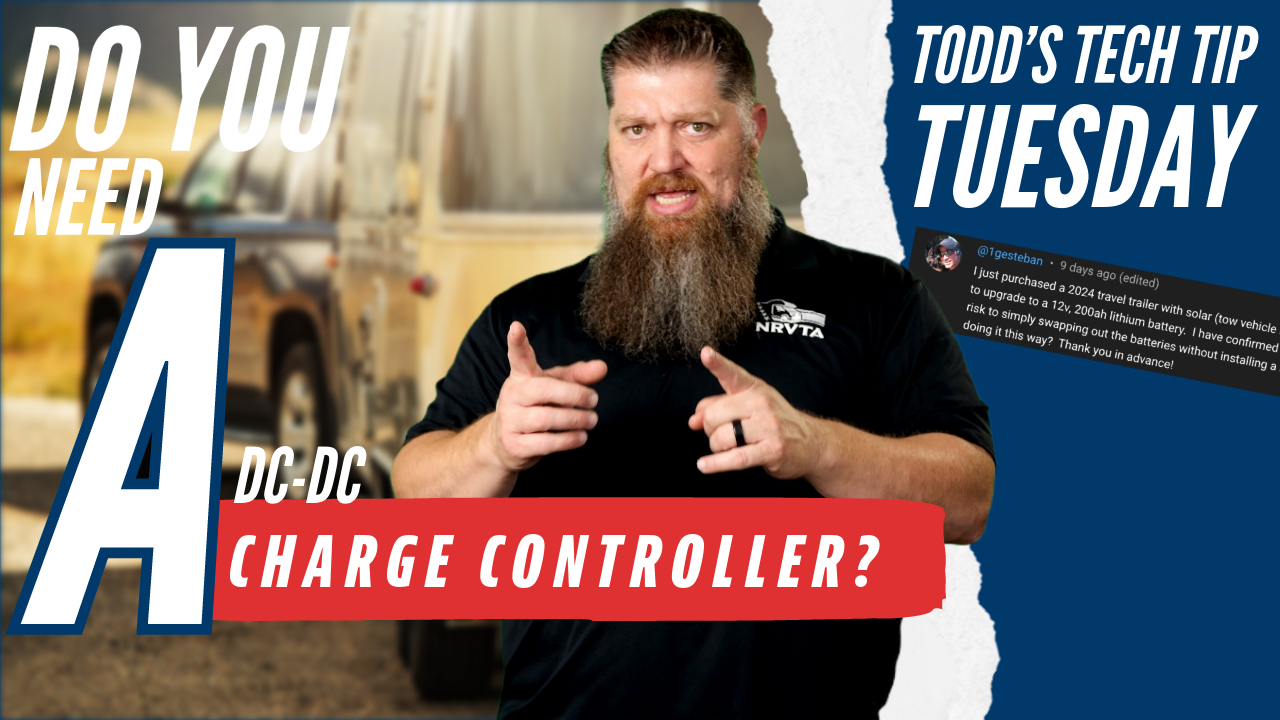Get your RV Technician Certification in as little as 5 weeks!

Introduction: Hey, fellow RV enthusiasts! In this blog post, we’ll delve into the details of upgrading your RV battery to a 12V 200Ah lithium battery. Our guide is inspired by a recent question, who is eager to switch from a 12V RV marine battery to a more advanced lithium battery for his 2024 travel trailer with solar capabilities. Let’s explore the considerations, risks, and advantages associated with this battery upgrade.
Understanding the Situation: He just purchased a 2024 travel trailer with solar features, towed by a Ford vehicle. He’s looking to replace the existing 12V RV marine battery with a 12V 200Ah lithium battery. He has confirmed that both his converter and solar charge controller are compatible with lithium batteries, supporting the higher voltage necessary for efficient charging.
The Question of the DC to DC Charge Controller: One concern is whether it’s necessary to install a DC to DC charge controller when upgrading to a lithium battery. The discussion touches on the seven-pin connector from the truck to the trailer, specifically the number four pin responsible for charging the batteries. The key question is whether omitting the DC to DC charge controller poses any risks.
Expert Insights: According to the expert advice in the conversation, there’s no inherent danger in skipping the installation of a DC to DC charge controller, given certain conditions. The limiting factor here is the size of the cable on the seven-pin connector. As lithium batteries can handle a faster charge, the concern is whether the alternator would be overworked. However, Todd explains that due to distance and the cable’s size, the seven-pin connector itself becomes the limiting factor.
The Role of Distance and Cable Size: The blog post emphasizes the principle that “distance is resistance.” In this context, the size of the cable on the seven-pin connector determines the rate at which the lithium batteries can be charged. Upgrading to a DC to DC charge controller becomes crucial if the distance or cable size is substantial. The post also mentions the option of upgrading the wire from the battery back to the travel trailer for improved efficiency.
To simplify the technical details, the post offers a valuable tech tip for those considering a lithium battery upgrade. If your solar controller and converter can handle lithium, and you’re not planning extensive modifications, feel free to swap out the batteries without the need for a DC to DC charge controller. Additionally, a bonus tip suggests exploring battery options at Big Beard Batteries for potential cost savings.
Conclusion: In conclusion, upgrading your RV battery to lithium can be a straightforward process if you understand the compatibility of your existing components. This situation serves as a practical example, highlighting the importance of considering factors like distance, cable size, and the need for additional controllers. Whether you’re a seasoned RVer or a newcomer, this comprehensive guide aims to empower you in making informed decisions for a smoother RVing experience. Happy travels!
Get Registered Today!
Talk to a student advisor to learn more!
